The Historical Significance of Stonewall Jackson House
Introduction to Stonewall Jackson House
Nestled in the heart of Lexington, Virginia, the Stonewall Jackson House is a testament to American history.
This remarkable dwelling, located at 8 East Washington Street, has been a focal point in the historic district of Lexington since its construction in 1800.
The house, named after Confederate General Thomas “Stonewall” Jackson, has been preserved as a significant cultural landmark, attracting visitors interested in the rich tapestry of American Civil War history.
Architectural Features
The Stonewall Jackson House showcases a blend of architectural styles that reflect its long history.
Originally built as a two-story, four-bay brick dwelling, the house underwent significant modifications in 1845.
Dr. Archibald Graham, the then-owner, added a large stone rear addition, remodeled the front, and revamped the interior to accommodate his medical practice. These changes enhanced the house’s functionality and added to its historical and architectural value.
Recognition and Preservation
The Stonewall Jackson House has been recognized for its historical significance for over five decades.
It was officially listed on the National Register of Historic Places on April 24, 1973, underlining its importance in American heritage.
This designation has played a crucial role in preserving and maintaining the property, ensuring future generations can explore and appreciate this piece of history.
Moreover, the house’s restoration in 1979 was meticulously carried out to reflect its appearance during Jackson’s occupancy, further cementing its status as a key historical site.
In Lexington, Virginia, where the past and present converge, the Stonewall Jackson House remains a prominent feature.
For those interested in exploring more about the area, there are numerous things to do in Lexington, Virginia, ranging from historical tours to enjoying the natural beauty of the Shenandoah Valley.
The Stonewall Jackson House serves as a window into the past and as a cornerstone in the tapestry of Lexington’s vibrant community and rich heritage.
Stonewall Jackson’s Life at the House
Jackson’s Acquisition and Residence
On November 4, 1858, Major Thomas “Stonewall” Jackson, then a professor at the nearby Virginia Military Institute, purchased the house for $3,000.
This acquisition marked a significant phase in his life, as it was his only house. Jackson and his second wife, Mary Anna Morrison, made this house their home until the onset of the American Civil War in 1861.
This period in the house blended personal and professional growth for Jackson, reflecting his life before his rise to military fame.
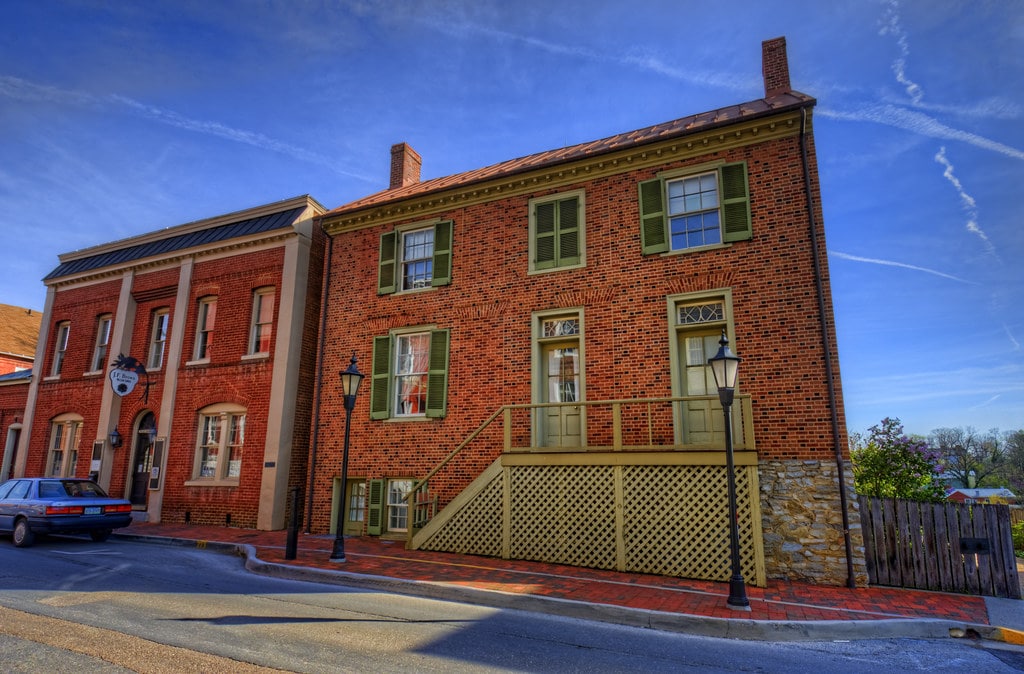
Family Life and Personal Aspects
The Stonewall Jackson House was not just a residence but a sanctuary for Jackson and his family. Here, he and Mary Anna experienced the joys and sorrows of family life.
The house bore witness to their daily lives, from quiet evenings to the challenges they faced together.
It was within these walls that Jackson’s side, often overshadowed by his military persona, was most visible.
The couple’s life in Lexington, away from the battlefield, offered a different perspective on the famed general.
Transition from Civilian to War Hero
The Stonewall Jackson House was pivotal in Jackson’s transition from a respected academic to a renowned war hero.
In 1861, as the Civil War erupted, Jackson left the comforts of his home to join the Confederate forces.
His departure marked the end of an era for the house and the beginning of his journey to becoming a legendary figure in American history.
The house remained a silent witness to this significant transformation, encapsulating a critical moment in the nation’s past.
The House’s Role Post-Jackson Era
Stonewall Jackson Memorial Hospital
After Jackson’s departure, the house embarked on a new chapter. From 1907 to 1954, it served as the Stonewall Jackson Memorial Hospital.
This adaptation of the house into a medical facility represented a significant shift in its use, reflecting the changing needs of the Lexington community over time.
The hospital played a crucial role in providing medical care to the local population, further embedding the house in the town’s history.
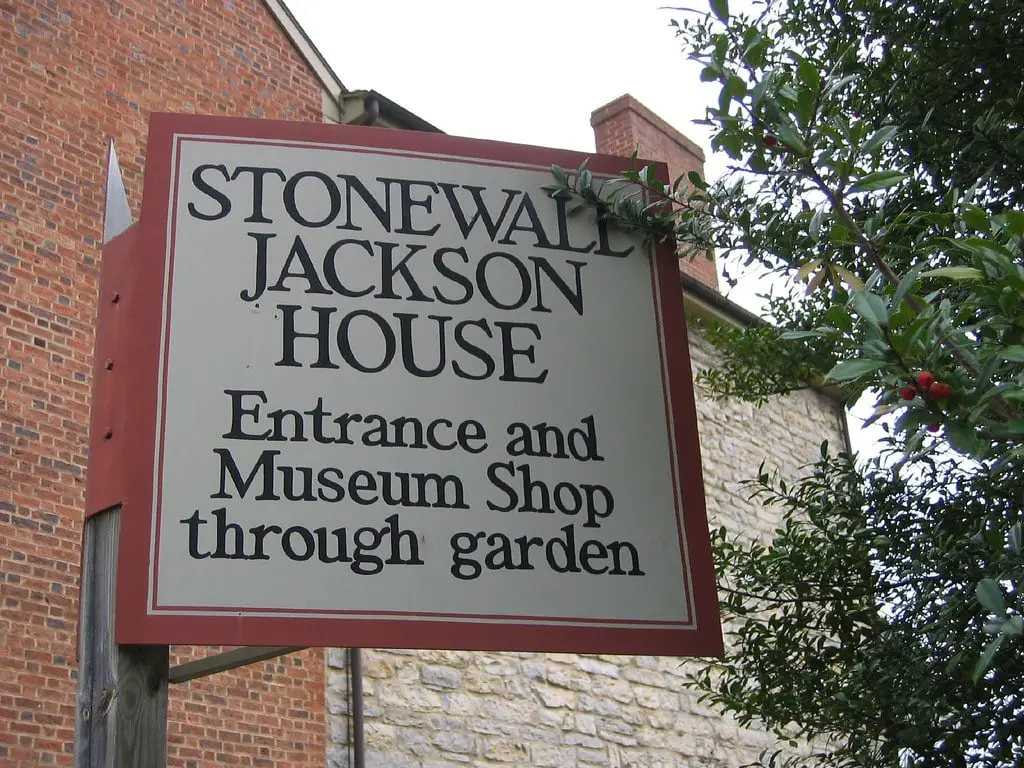
Transformation into a Museum
In 1954, the Stonewall Jackson House began its journey as a museum. This significant transformation marked the house’s shift from a private residence and hospital to a public historical site.
The restoration efforts in 1979 were pivotal in recreating the house’s appearance during Jackson’s time, allowing visitors to step back into the mid-19th century.
This change preserved the house’s historical integrity and opened its doors for educational and cultural exploration.
Current Use and Educational Role
Today, the Stonewall Jackson House is a vibrant educational resource managed and operated by the Virginia Military Institute.
Open to the public from April through December; it offers guided tours that provide insights into Jackson’s life and the broader historical context of the era.
The house, along with its garden, serves as a living classroom, educating visitors about 19th-century Virginia, the life of Stonewall Jackson, and the Civil War’s impact on American society.
The Museum Experience
Touring the Stonewall Jackson House
The Stonewall Jackson House offers a unique self-guided tour experience, allowing visitors to explore independently.
These tours highlight the various rooms and their historical significance, providing a glimpse into the life of Stonewall Jackson and his family.
The museum has meticulously preserved the house’s interior, offering an authentic representation of 19th-century living.
Visitors can embark on this journey of discovery every hour and half-hour, from 9 am to 4 pm, Tuesday through Saturday.
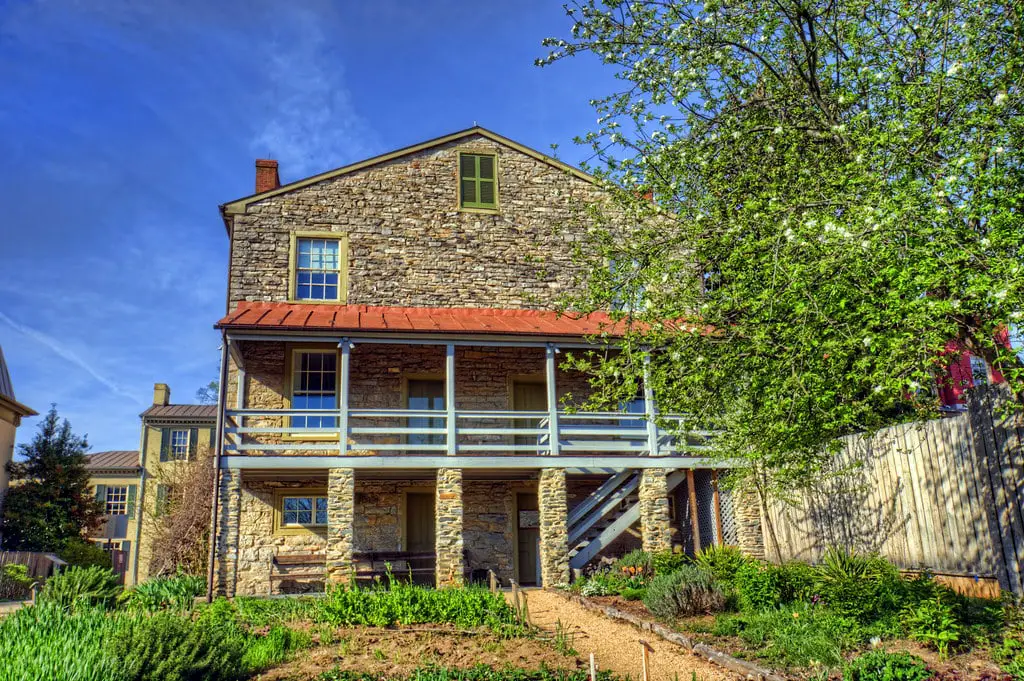
Exhibits and Collections
The museum houses various exhibits and collections that delve into aspects of Jackson’s life and the Civil War era.
Each room within the house is carefully curated to reflect its original use, complete with period furniture and personal artifacts belonging to the Jackson family.
These collections offer an intimate look into the domestic life of the era and provide context to Jackson’s personal and professional journey.
Gardens and Grounds
In addition to the house itself, the Stonewall Jackson House is renowned for its beautifully maintained gardens and grounds.
These outdoor spaces were a source of pride and joy for Jackson, who took great interest in cultivating the kitchen garden behind the house.
Today, the gardens continue to be a highlight for visitors, offering a serene and picturesque setting that complements the house’s historical significance.
Stonewall Jackson’s Legacy in Lexington
Jackson’s Impact on Lexington
Stonewall Jackson left an indelible mark on the town during his decade in Lexington.
His roles as a professor at the Virginia Military Institute, a church leader, and a community figure shaped Lexington’s cultural and educational landscape.
As his former residence, the house symbolizes his contributions to the town and offers a tangible connection to his legacy.
Lexington Today
Lexington, Virginia, remains a town steeped in history, with the Stonewall Jackson House playing a central role in its historical narrative.
The town’s Main Street, bustling with shopping and dining opportunities, echoes the charm of the era when Jackson made Lexington his home.
The house is also conveniently located near the Virginia Military Institute and Washington & Lee University campuses, making it a focal point for visitors and history enthusiasts.
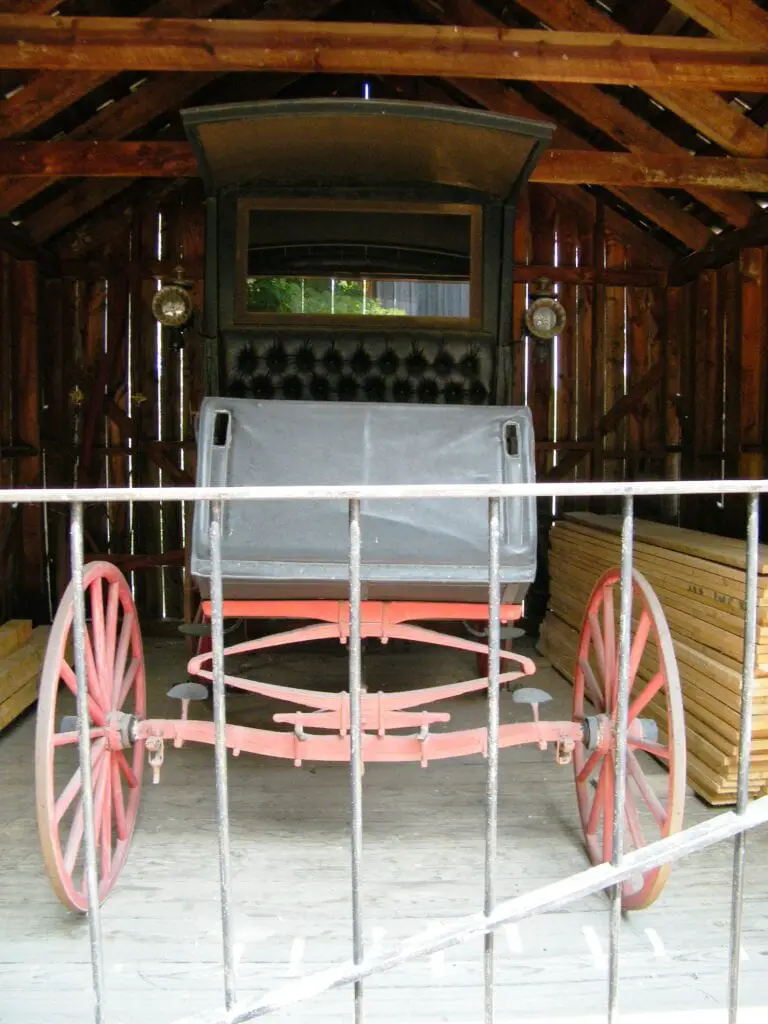
Educational and Cultural Contributions
The Stonewall Jackson House extends beyond being a mere historical site; it is an active educational and cultural hub.
The museum’s efforts in preserving and interpreting Jackson’s life and times have significantly contributed to understanding American history.
Through its exhibits, tours, and educational programs, the house continues to enlighten and inspire visitors, playing a vital role in the ongoing dialogue about America’s past.
Recent Developments and Future Plans
Recent News and Events
The Stonewall Jackson House has continued to evolve and adapt in recent years.
Notable events include special tours and community engagements that have brought new perspectives to the museum’s offerings.
For instance, in 2023, the museum hosted a series of special summer tours, attracting both residents and tourists.
These events have helped to deepen the community’s connection with the museum and its historical significance.
Renovation and Expansion Plans
The museum is also undergoing significant changes, with plans for renovation and expansion.
A notable project is relocating the Jackson House Gift Shop and Orientation Center to the newly renovated 1887 Davidson-Tucker House.
This expansion, expected to enhance the visitor experience, represents the museum’s commitment to growth and adaptation, ensuring it remains a dynamic and engaging historical site.
Community Engagement and Future Projects
The Stonewall Jackson House continues to engage with the Lexington community through various initiatives and projects.
Plans include educational programs and collaborations with local institutions to promote historical awareness and cultural appreciation.
These efforts underscore the museum’s role as a keeper of history and an active participant in the community’s cultural and educational development.
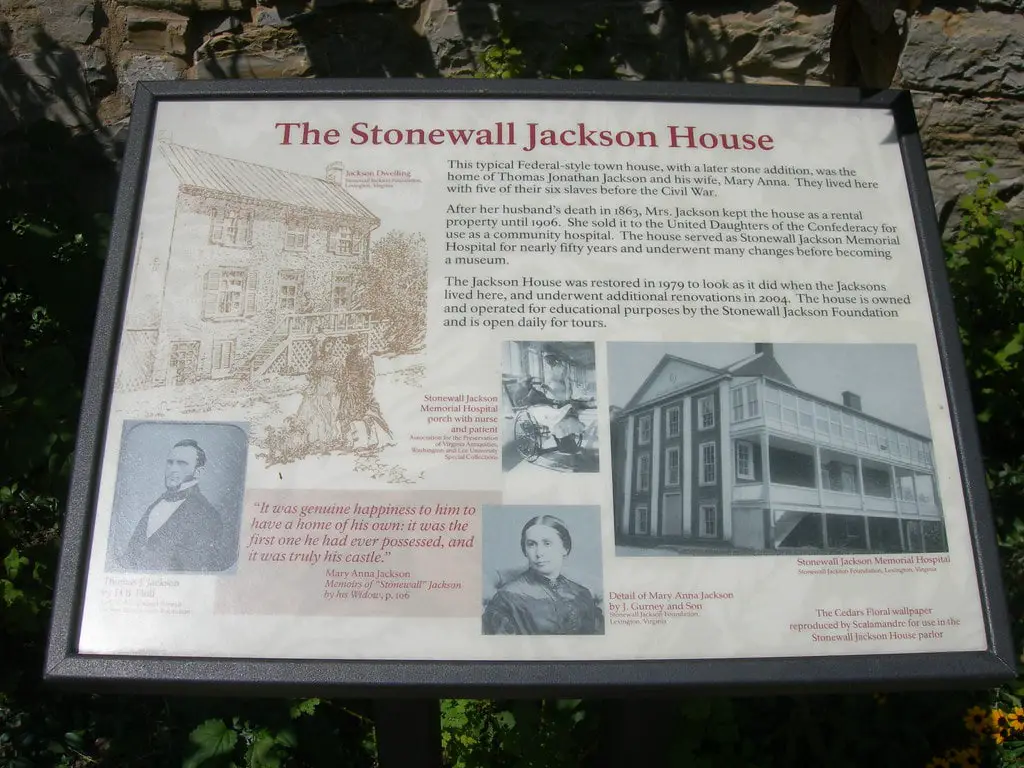
Conclusion
The Enduring Legacy of the Stonewall Jackson House
The Stonewall Jackson House in Lexington, Virginia, stands as a beacon of American history, offering a window into the past and a reflection on the present.
As of December 2023, the house continues to attract visitors from all over, drawn by its rich history and the legacy of Stonewall Jackson.
The museum’s preservation, education, and community engagement efforts have ensured that this historical site remains relevant and informative.
A Living Monument to History
The house is more than just a static monument; it is a living testament to the life and times of one of America’s most notable figures.
Through its exhibits, tours, and educational programs, the Stonewall Jackson House provides a comprehensive and immersive experience, allowing visitors to step back in time and understand the complexities of the Civil War era.
Looking to the Future
As the Stonewall Jackson House moves forward, it continues to evolve, embracing new technologies and methodologies to tell the story of Stonewall Jackson and 19th-century America.
Its ongoing renovations, community projects, and educational initiatives promise to keep the house at the forefront of historical preservation and education.
The Stonewall Jackson House remains a vital part of Lexington’s cultural landscape, where history is preserved and brought to life for future generations to learn from and appreciate.
